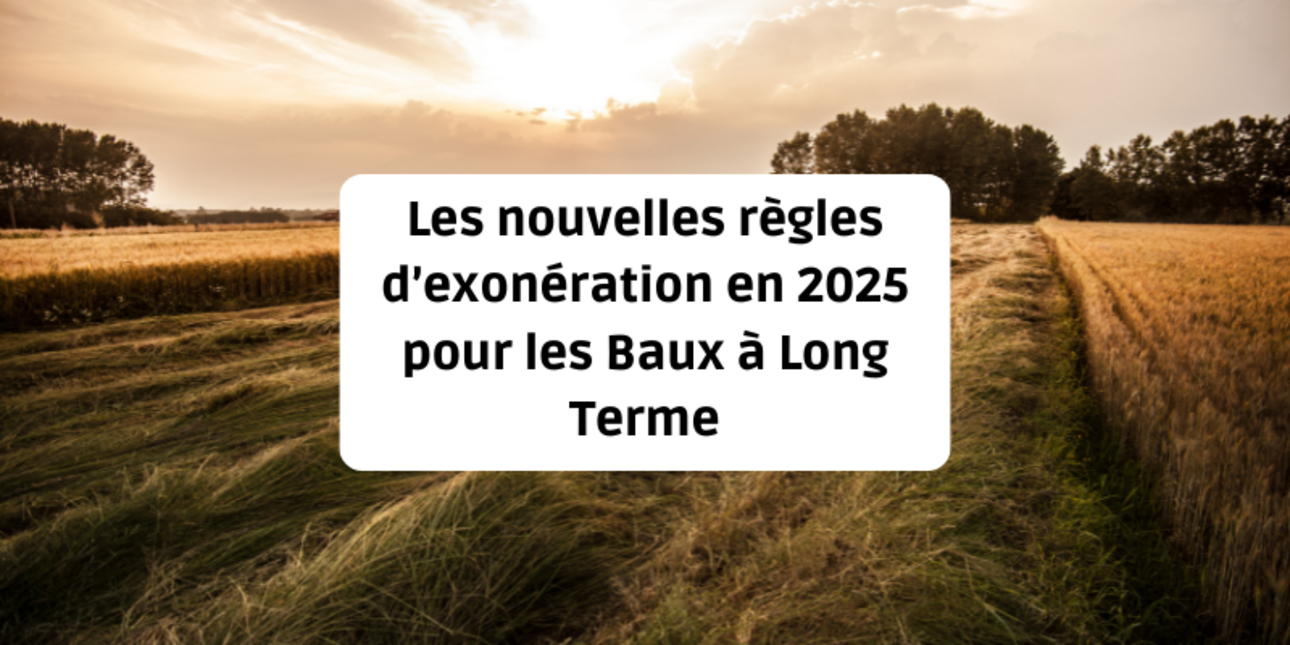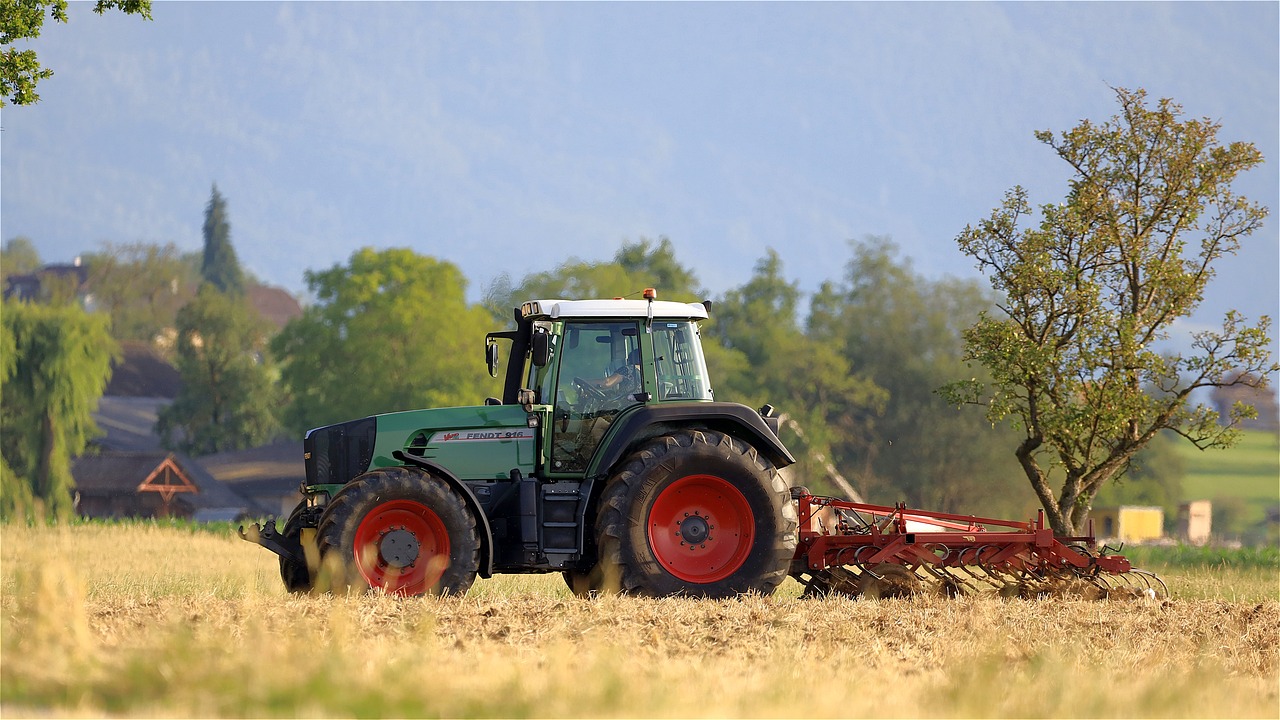
Passing on rural heritage is a major challenge for maintaining and developing French farms. Against this backdrop, the 2025 Finance Act published on 14 February 2025 considerably strengthened the partial exemption from transfer duties applicable to rural property leased under long-term leases. This favourable tax measure is designed to make it easier to transfer farms while ensuring their long-term survival. The changes to the exemption thresholds and commitment conditions represent a significant step forward for the agricultural sector and the preservation of agricultural land.
Prior to the reform introduced by the 2025 Finance Act, the General Tax Code (CGI) already provided for a favourable regime for gratuitous transfers under a long-term rural lease. This system, codified in articles 793 and 793 bis of the CGI, applied to both leased rural property and GFA (Groupement Foncier Agricole) shares.
The tax authorities applied a partial exemption from free transfer tax, as follows:
To benefit from this partial exemption, a number of conditions had to be met:
In the case of GFA shares, the exemption only applied to groups whose articles of association prohibited direct farming, and the agricultural holdings making up the estate had to have been given under a long-term lease or a transferable lease.
Article 70 of the Finance Act for 2025 of 14 February 2025 considerably raised the upper limits for application of the 75% exemption. This increase applies to both rural property leased on a long-term basis and shares in GFAs corresponding to such property.
From now on, the partial exemption scheme will apply as follows:
This measure represents a major step forward, particularly for the transfer of large farms, whose market value frequently exceeds €1 million.
In particular, it will enable certain winegrowing estates whose vines are valued at more than €1 million per hectare to pass on an estate within the family without being obliged to sell it to pay the transfer duties, which could represent very high amounts.
The duration of the undertaking to hold the assets now determines the level of the exemption. To benefit from the new exceptional ceiling of €20 million, the donees or heirs must undertake to hold the assets for a period of 18 years. This provision is designed to guarantee the long-term stability of farms and prevent speculative sales.
A press release issued by the government on 1 April 2025 provided further details on the application of these provisions of the Finance Act for 2025, particularly with regard to the partial exemption from DMTG referred to in article 793 bis of the General Tax Code.
While the law stipulates that these new provisions will apply to leases signed on or after 1 January 2025,  the press release states that the new exemption thresholds will apply to all long-term leases, regardless of when they are signed.
the press release states that the new exemption thresholds will apply to all long-term leases, regardless of when they are signed.
However, we will have to wait for the 2026 Finance Act, which is expected to contain a specific article, to be sure.
Let's take the example of a transfer by death to two children, on 4 January 2026, of a farm leased under a long-term lease with a total value of €1,600,000. The lease was entered into on 15 February 2025. In the absence of a previous gift, each child's share amounts to €800,000.
In this case, if the heirs undertake to hold the property for 5 years, the exemption will apply as follows:
In total, the exemption will apply to €550,000 per child, with the taxable portion limited to €250,000.
On the other hand, if the heirs undertake to keep the property for 18 years, the 75% exemption will apply to their entire share (€800,000), i.e. a total exemption of €600,000 per child and a taxable fraction reduced to €200,000.
The scheme also applies to shares in agricultural landholding groups, but not to other types of agricultural companies, in the proportion corresponding to the rural property leased under long-term or transferable leases. To qualify, the GFA's articles of association must prohibit direct farming, a condition expressly set out in article 793 of the CGI.
It should be noted that this partial exemption is cumulative with the allowance applicable in the event of ownership split (usufruct/bare ownership). This possibility of accumulation opens up interesting prospects for tax optimisation when transferring rural assets.
Long-term rural leases also offer other tax advantages, particularly in terms of property wealth tax (IFI). Rural property leased under long-term leases is partially exempt from IFI, subject to certain conditions.
This reform is part of an overall policy to support the transfer of farms and the installation of young farmers. By reducing the taxation of gratuitous transfers, the legislator aims to encourage the preservation of agricultural assets within families and make it easier to take over farms.
In particular, the significant increase in the ceiling to €20 million for 18-year retention commitments should help to preserve the integrity of large farms, which are often divided up during inheritance because of the tax burden.
To benefit from this partial exemption, the donees or heirs must expressly undertake to hold the assets for the required period (5 or 18 years, depending on the level of exemption required). This commitment must be formalised in the declaration of inheritance or the deed of gift.
We strongly recommend that you consult a notary specialising in rural law to ensure that the conditions for applying the scheme are met. Failure to comply with the undertaking to retain will result in the exemption being called into question and the reinstatement of the tax normally due, plus interest for late payment.
Where the donee is the lessee of the long-term leased property, the benefit of the partial exemption is subject to the condition that the lease has been granted for at least two years at the time of the gift. However, this condition is not required in the case of a transfer by death.
A particularly favourable tax measure for the agricultural sector is the strengthening of the partial exemption from transfer duties on freehold rural property leased under long-term leases. By substantially raising the thresholds for application of the 75% exemption (€600,000 for a 5-year commitment and up to €20 million for an 18-year commitment), the Finance Act 2025 encourages the intergenerational transfer of farms.
This reform is part of a wider policy to support the agricultural sector, which also includes measures to promote energy-efficient property renovation and specific measures to support the retirement of farmers.
For owners of rural property and shares in GFAs, it is now essential to plan ahead for gratuitous transfers in line with these new provisions, in order to optimise the applicable tax system and ensure the long-term future of family farms.